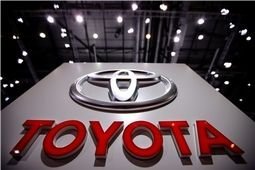Toyota Confident in Thailand, Invests Despite Flood

The Japanese car maker is building a manufacturing plant at Gateway industrial park and restarting a production line at its Thai Auto Works plant, where its Fortuners were produced, Kyoichi Tanada, president of the Toyota Motor Thai unit, told a briefing.
"The reason we invest more is simply because we're not producing enough," Tanada said.
The combined production capacity of the two new Toyota plants would be 88,000 units, he said, expecting the Gateway plant in Chachoengsao province to be ready for production in July 2013.
It will produce passenger cars as well as environmentally friendly "eco cars", he said. The TAW plant in Samut Prakan province, which was closed in May 2010 after a drop in demand, would be able to start in December of this year, he said.
"We won't move anywhere. I'll let the Thai government work with JICA to solve the flood problems. I'm full of hope and confidence for both," he said, referring to Japan International Cooperation Agency.
Despite the flood that hit the industry hard in the fourth quarter, analysts say Japanese car makers would continue to shift production to Thailand to take advantage of low costs.
Tanada said production losses for Toyota from the tsunami in Japan and the Thai flood amounted to 200,000 vehicles in 2011.
Japan's Minebea Co. also said today it would invest $75 million to build a new plant in Thailand in the second half of this year despite suffering from the floods. The bearing manufacturer said its two existing plants should restart in February and April.
Thai sales to rise
Toyota, in Thailand for five decades, expects total Thai auto sales to rise 38.5 percent to 1.1 million in 2012, recovering from a drop of 0.8 percent last year thanks to new models plus supportive government policies, Tanada said.
For Toyota itself, 2012 sales are projected to increase 55.1 percent to 450,000 units for a 40.9 percent market share, against an 11 percent drop to 290,061 units in 2011, with sales of passenger cars falling 2.6 percent to 138,104.
"There is still very high demand in Thailand's automotive market and the demand is likely to increase in 2012," Tanada said.
The forecast relates to 214,000 passenger cars and 236,000 commercial vehicles, the latter including 214,000 1-ton pickup trucks.
Japanese car makers suffered big disruptions to their supply chain both from the March 11 earthquake and tsunami at home and the floods in Thailand, leading to a plunge in production, sales and inventory in many markets.
Analysts say Thailand's automobile market is expected to recover strongly in 2012, helped by tax rebates for first-time car buyers and pent-up demand as the industry recovers from the floods.
Nouvelles connexes


